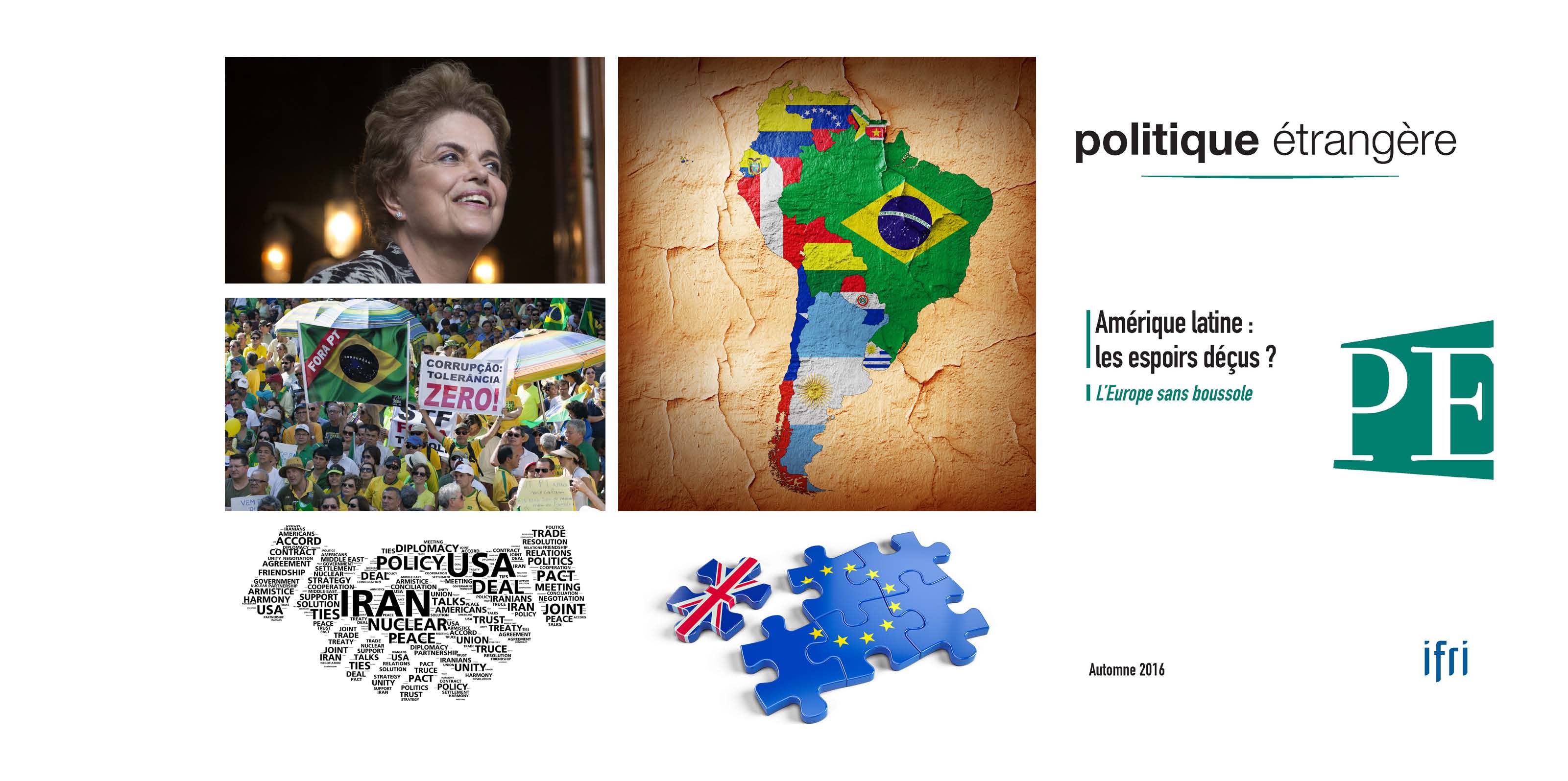Latin America's Dashed Hopes
Only recently, Latin America seemed to embody an inexorable movement towards political democratization, towards a decrease in stark inequalities as well as greater involvement in the global economy. But the dream remains unrealized.

The Brazilian Workers’ Party has come up against deep-rooted inequalities, a slowdown in economic growth, and a discredited political system. Argentina has been through two ‘Kirchnerist’ terms, from which it is difficult to drawn conclusions, and whose legacy seems uncertain. As for Columbia and Mexico, strategies to bring an end to violence among rebel groups and agents of narco-trafficking still appear to be fraught with complexities and risks. Aside from its diversity and, for the time being, its failure to strengthen its own democratic choices, what other phenomena are being witnessed in Latin America?
Faced with the crisis of Europe as a unified continent, coupled with the crisis of the process of European construction, and the crisis of the institutions of the European Union, European hope fights for its survival. Guy Verhofstadt and Dominique Moïsi reflect upon the avenues that are still open for Europe: should Europe take the federal leap or reinforce the nation? Should Europe forge forward at the risk of rupture between public sentiment and institutions? Should we pay more heed to the nation at the risk of a slide towards nationalism? The coming months, and Brexit negotiations will be instructive, but now is certainly the time for decisive debates.
FOCUS LATIN AMERICA’S DASHED HOPES
Brazil: The Harder they Fall, by Joao Augusto de Castro Neves and Bruno Reis (read the article)
Argentina: What is Kirchnerism?, by Sébastien Velut
Colombia: The Long March Towards Peace?, by Guillaume Lasconjarias
Mexico: Violence and Other Demons, by Ilan Bizberg
Panama: A Fragile State in Search of International Status, by Kevin Parthenay
COUNTER ANALYSIS Europe Without a Compass
Europe: Back to the Future, by Guy Verhofstadt
Rethinking Europe, by Dominique Moïsi
CURRENT AFFAIRS
Hamas and Jihadists in Gaza: Impossible Control, Improbable Ceasefire, by Leila Seurat
The Fight Against Terrorism: How is Japan Adapting?, by Jean-François Heimburger
Diplomacy of Autonomous Weapons: Debates in Geneva, by Jean-Baptiste Jeangène Vilmer
BAROMETERS
Will Iran Give Up its Nuclear Weapons?, by Simond de Galbert
The Indian Ocean: Strategic Indo-Australian Alliance, by Frédéric Grare
BOOK REVIEWS
Directed by Marc Hecker
Zbigniew Brzezinski. Stratège de l'empire, by Justin Vaïsse, by Jean Klein
La Russie entre peurs et défis, by Jean Radvanyi et Marlène Laruelle. La Russie sous Poutine, by Jean-Jacques Marie. Comment Poutine change le monde, by Jean-François Bouthors, by Dominique David.
This content is available in French: L'éditorial de Politique étrangère, vol. 81, n° 3, automne 2016
This content is available in French: Les lectures de Politique étrangère, vol. 81, n° 3, automne 2016
This content is available in French: Le dossier de presse de Politique étrangère vol. 81, n° 3, automne 2016






